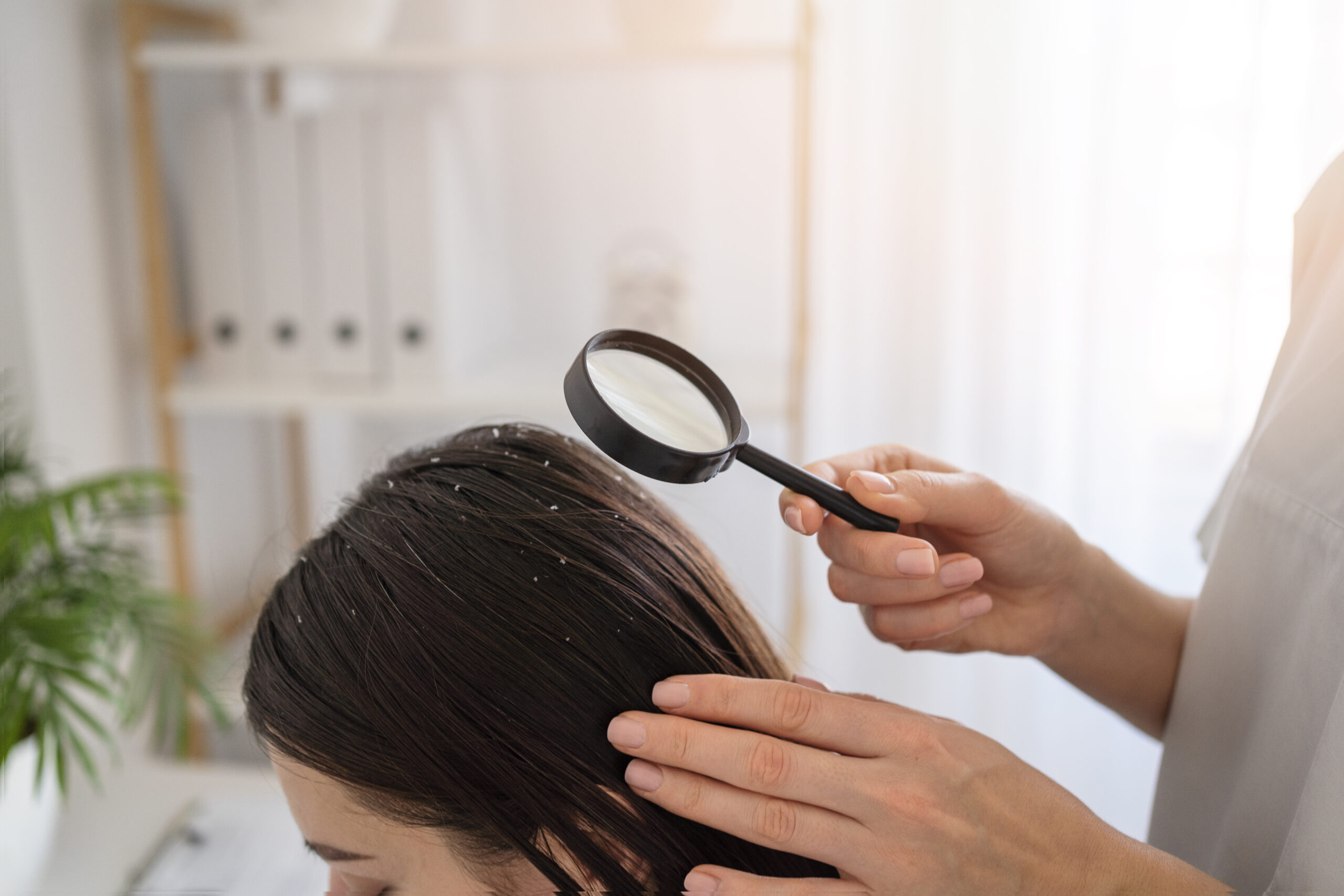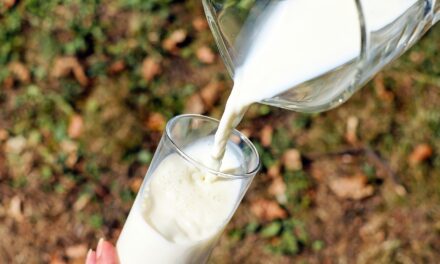Introduction: Dandruff – A Common Issue with a Natural Solution
Dandruff is a widespread problem affecting millions of people worldwide, causing irritation, flakiness, and itching. For many, the constant struggle with dry scalp and white flakes can be distressing, not to mention the discomfort that comes with it. While modern hair care products claim to offer instant results, they often contain harsh chemicals that can cause more harm than good in the long run.
In Ayurveda, the ancient Indian system of natural healing, dandruff is seen as an imbalance in the body’s doshas (the three vital energies: Vata, Pitta, and Kapha). This holistic approach provides remedies that not only target the symptoms but also work on overall scalp health. Ayurvedic hair masks, made from natural ingredients like yogurt, curry leaves, and ginger, offer an effective, long-lasting solution to dandruff without harmful side effects.
In this post, we will dive deep into how you can use Ayurvedic treatments for dandruff and provide a step-by-step guide to making and using an Ayurvedic hair mask that will keep your scalp dandruff-free while promoting stronger, healthier hair.
1. What is Dandruff?
Dandruff is a condition characterized by the flaking of dead skin from the scalp. These flakes can fall on the shoulders and cause embarrassment, but the condition also leads to itching and irritation, which can worsen if left untreated. While dandruff itself is not a serious medical condition, it can result in scalp inflammation and increase the risk of hair loss.
2. Causes of Dandruff
There are various factors that contribute to dandruff. Here are the main causes:
- Dry Skin: People with dry skin tend to experience dandruff more often. Cold winter months, in particular, make the scalp dry, leading to flaking.
- Oily Skin (Seborrheic Dermatitis): On the flip side, people with oily skin also suffer from dandruff due to excess sebum production. This can create an environment where the scalp becomes inflamed, flaky, and itchy.
- Fungal Infections: Malassezia, a yeast-like fungus, naturally lives on the scalp but can grow excessively and lead to dandruff. It thrives in oily environments.
- Hair Products: Using too many styling products or shampoos that contain sulfates, parabens, and alcohols can irritate the scalp, worsening dandruff.
- Diet and Lifestyle: Poor nutrition, stress, and lack of sleep can weaken the immune system, making you more susceptible to scalp issues like dandruff.
3. Ayurvedic Approach to Dandruff
In Ayurveda, dandruff is often associated with an imbalance in the Kapha and Vata doshas, leading to dry or oily scalp conditions. The aim is to restore balance by using herbs, oils, and natural remedies that target the root cause of dandruff. Ayurvedic treatments are holistic, focusing on not only treating dandruff but also improving overall hair health and preventing recurrence.
Balancing Kapha and Vata Doshas for a Healthy Scalp:
Kapha dosha imbalance leads to excessive oil production on the scalp, creating an ideal environment for fungal infections and dandruff. Vata dosha imbalance, on the other hand, dries out the scalp, resulting in flakiness. By using Ayurvedic ingredients like curry leaves, yogurt, and ginger, we can balance both doshas to eliminate dandruff and restore scalp health.
4. Ayurvedic Hair Mask Ingredients Explained
This Ayurvedic hair mask combines simple yet powerful ingredients that work together to eliminate dandruff naturally while providing additional hair and scalp benefits.
1. Yogurt
Anti-inflammatory Properties:
Yogurt is an excellent natural remedy for soothing inflamed and itchy scalps. It’s rich in probiotics that balance the microbiome on the scalp, helping to keep fungal infections, such as those caused by Malassezia, in check.
Moisturizing Effect:
Yogurt is a natural moisturizer that helps hydrate the scalp, preventing dryness and flakiness. The lactic acid in yogurt gently exfoliates dead skin cells, leaving the scalp clean and refreshed.
2. Curry Leaves
Rich in Nutrients:
Curry leaves are packed with proteins, beta-carotene, vitamins A, B, C, and E, calcium, and iron. These nutrients are essential for nourishing the hair follicles and promoting stronger, healthier hair. They also help control excess sebum production, which can worsen dandruff.
Anti-fungal Properties:
Curry leaves possess antifungal and antibacterial properties that help fight off scalp infections and dandruff.
3. Ginger
Promotes Scalp Circulation:
Ginger is known for stimulating blood circulation, which promotes better nutrient delivery to the hair follicles. This encourages healthy hair growth while keeping the scalp clean and free from dandruff.
Anti-microbial and Anti-fungal Effects:
Ginger contains gingerol, an active compound with strong antimicrobial properties that can reduce dandruff-causing fungi and keep the scalp healthy.
5. How to Prepare the Ayurvedic Hair Mask
Ingredients:
- 1 tablespoon of yogurt
- 5-7 crushed curry leaves
- 2 inches of grated ginger
Step-by-Step Guide:
- Crush the Curry Leaves: Use a mortar and pestle to crush 5-7 fresh curry leaves into a paste.
- Grate the Ginger: Take a 2-inch piece of ginger, peel it, and grate it finely.
- Mix the Ingredients: In a bowl, combine the yogurt, curry leaves, and grated ginger. Stir the mixture until it forms a smooth paste.
- Rest the Mixture: Let the mixture sit for 30 minutes to allow the natural compounds to activate.
- Apply to the Scalp: Using a brush or your fingers, apply the mixture evenly to your scalp and hair roots.
- Leave it On: Allow the hair mask to sit for 30 minutes to 1 hour.
- Rinse Off: Wash your hair with lukewarm water and a mild Ayurvedic shampoo to remove the mask.
6. How Often to Use the Hair Mask
For the best results, apply this Ayurvedic hair mask twice a week. After three weeks of regular use, you should notice a reduction in dandruff, less scalp itching, and improved overall hair health. Consistency is key when using natural remedies, as they work gradually but provide long-term benefits.
7. Benefits of an Ayurvedic Hair Mask
- Fights Dandruff Naturally:
This Ayurvedic hair mask is designed to target the root cause of dandruff by balancing the scalp’s oil production and eliminating fungal infections. - Nourishes Hair Follicles:
The vitamins and minerals in curry leaves and ginger strengthen the hair from the roots, promoting thicker and shinier hair. - Reduces Scalp Itching:
Yogurt soothes inflammation, while ginger and curry leaves have antifungal properties that help alleviate scalp irritation and itching. - Moisturizes Dry Scalp:
The moisturizing properties of yogurt prevent scalp dryness and flakiness, while ginger and curry leaves improve scalp hydration. - Prevents Hair Loss:
By improving scalp health and circulation, this mask can help reduce hair fall and promote healthy hair growth. - Chemical-Free Solution:
Unlike store-bought products, which often contain sulfates and parabens, this Ayurvedic hair mask is free from harmful chemicals and preservatives, making it a safer option for sensitive skin.
8. Scientific Evidence Supporting Ayurvedic Ingredients for Dandruff
Scientific studies have shown the efficacy of natural ingredients like yogurt, curry leaves, and ginger in treating scalp issues. According to research published in the Indian Journal of Dermatology in 2000, these ingredients have been proven to reduce dandruff significantly by soothing scalp inflammation and controlling fungal infections. The study highlighted the powerful antifungal and anti-inflammatory properties of these natural substances, offering an effective, long-term solution for dandruff.
9. Additional Ayurvedic Tips for Dandruff Prevention
Along with using the Ayurvedic hair mask, here are some additional tips to keep dandruff at bay:
1. Neem Oil for Scalp Massage:
Neem oil is well-known in Ayurveda for its antifungal properties. Regular scalp massages with neem oil can help keep the scalp free from dandruff and dryness.
2. Aloe Vera Gel:
Aloe vera has natural soothing properties that can calm an irritated scalp and prevent flaking. Applying aloe vera gel to the scalp once a week can help prevent dandruff.
3. Dietary Changes:
In Ayurveda, diet plays a crucial role in maintaining scalp health. Include foods rich in omega-3 fatty acids, zinc, and biotin in your diet to nourish your scalp from within. These nutrients are found in nuts, seeds, fish, and leafy greens.
4. Hydration:
Make sure to drink plenty of water to keep your scalp hydrated. Dehydration can lead to a dry, flaky scalp and increase the risk of dandruff.
5. Avoid Heat Styling:
Excessive use of heat styling tools can dry out the scalp, leading to dandruff. Limit the use of blow dryers, straighteners, and curling irons to prevent scalp damage.
6. Shampooing Frequency:
Over-washing your hair can strip the scalp of its natural oils, while under-washing can lead to a buildup of dead skin cells. Finding the right balance is key. For most people, washing hair 2-3 times a week is ideal.
10. Conclusion
Dandruff may be a common issue, but with the right Ayurvedic treatments, it’s easy to manage. This Ayurvedic hair mask made from yogurt, curry leaves, and ginger offers a natural, chemical-free way to eliminate dandruff and nourish your scalp. Consistent use of this mask, along with a healthy lifestyle, can provide long-lasting relief from dandruff and promote strong, shiny hair.
Try this Ayurvedic hair mask today, and experience the power of nature in treating dandruff!





